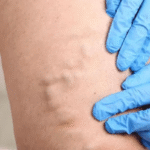Expecting a baby is a time filled with excitement and anticipation. As a parent, one of the most important things you can do is ensure the health of your baby right from the start. That’s where Non-Invasive Prenatal Testing (NIPT) comes into the picture. At Medgenome Labs, we are committed to making cutting-edge genetic testing accessible, accurate, and stress-free for expectant parents.
What is NIPT?
NIPT (Non-Invasive Prenatal Testing) is a safe and highly accurate screening test that analyzes fetal DNA circulating in the mother’s blood to detect certain chromosomal abnormalities. It is typically performed after the 10th week of pregnancy and involves just a simple blood draw from the mother—making it completely non-invasive and risk-free for the baby.
What Conditions Does NIPT Screen For?
NIPT is primarily used to assess the risk of the most common chromosomal disorders, including:
-
Down Syndrome (Trisomy 21)
-
Edwards Syndrome (Trisomy 18)
-
Patau Syndrome (Trisomy 13)
-
Sex chromosome abnormalities (like Turner Syndrome or Klinefelter Syndrome)
-
Optional screening for microdeletions and other rare conditions (based on the lab and test panel selected)
At Medgenome Labs, our advanced NIPT solutions provide comprehensive screening options that can be tailored to individual needs and preferences.
How Does NIPT Work?
During pregnancy, a small amount of the baby’s DNA crosses into the mother’s bloodstream. NIPT uses a technique called cell-free DNA (cfDNA) analysis to examine this genetic material. By comparing fetal DNA with maternal DNA, the test can identify chromosomal differences that may suggest a genetic condition.
Why Choose NIPT?
-
✅ Safe – No risk of miscarriage, unlike invasive procedures like amniocentesis
-
✅ Accurate – Over 99% sensitivity for common trisomies
-
✅ Early Detection – Available as early as 10 weeks of pregnancy
-
✅ Peace of Mind – Reliable insights into your baby’s health
Who Should Consider NIPT?
While NIPT is recommended for all pregnant women, it is especially advised for those who:
-
Are 35 years or older
-
Have a family history of genetic disorders
-
Had abnormal results from other prenatal screenings
-
Previously had a pregnancy with a chromosomal abnormality
At Medgenome Labs, we believe that every parent deserves access to high-quality prenatal care. Our NIPT services are designed to provide you with clear answers, quickly and confidently.
What Happens If My NIPT Results Are Abnormal?
It’s important to remember that NIPT is a screening test, not a diagnostic test. An abnormal result doesn’t confirm a condition—it simply indicates a higher risk. In such cases, follow-up testing such as chorionic villus sampling (CVS) or amniocentesis may be recommended to confirm the diagnosis.
Our genetic counselors at Medgenome Labs are here to support you at every step, helping you understand your results and guiding you through the next steps.
Why Choose Medgenome Labs for Your NIPT?
-
🔬 Cutting-edge genomic technology
-
🧬 High accuracy and comprehensive panels
-
💬 Personalized genetic counseling
-
🌍 Trusted by thousands of clinicians and families across India
Final Thoughts
NIPT is a powerful tool that empowers parents with knowledge about their baby’s health early in pregnancy. With no risk to the baby and high accuracy, it offers reassurance and helps in informed decision-making.
Choose Medgenome Labs for your NIPT needs—because every pregnancy deserves the best care science can offer.
Frequently Asked Questions (FAQs) about NIPT
1. What is NIPT?
NIPT (Non-Invasive Prenatal Testing) is a blood test that screens for certain chromosomal conditions in a fetus by analyzing small fragments of fetal DNA present in the mother’s blood.
2. When can I take the NIPT test?
NIPT can be performed as early as 10 weeks into the pregnancy.
3. Is NIPT safe for my baby?
Yes. NIPT is completely non-invasive and involves only a blood sample from the mother, posing no risk to the baby.
4. What conditions can NIPT detect?
NIPT primarily screens for:
-
Down Syndrome (Trisomy 21)
-
Edwards Syndrome (Trisomy 18)
-
Patau Syndrome (Trisomy 13)
-
Sex chromosome abnormalities (e.g., Turner Syndrome)
-
Some panels may include microdeletions and rare genetic disorders.
5. Is NIPT 100% accurate?
While no test is 100% accurate, NIPT has over 99% accuracy for common trisomies like Down syndrome. However, it is a screening test, not a diagnostic one.
6. Who should consider NIPT?
NIPT is recommended for all pregnancies, but especially for:
-
Women over 35
-
Those with abnormal ultrasound or blood test results
-
Families with a history of genetic conditions
7. Do I need a doctor’s prescription for NIPT at Medgenome Labs?
Yes. A valid prescription from your doctor is typically required to proceed with the test at Medgenome Labs.
8. How long do NIPT results take?
At Medgenome Labs, NIPT results are usually available within 7 to 10 working days.
9. What if my NIPT result is abnormal?
An abnormal result means there’s a higher risk of a condition, not a diagnosis. Your doctor may recommend confirmatory tests like amniocentesis, and our genetic counselors are available to guide you.
10. Is NIPT covered by insurance?
Coverage varies by provider. It’s best to check with your insurance company to confirm if NIPT is included under your plan.









































